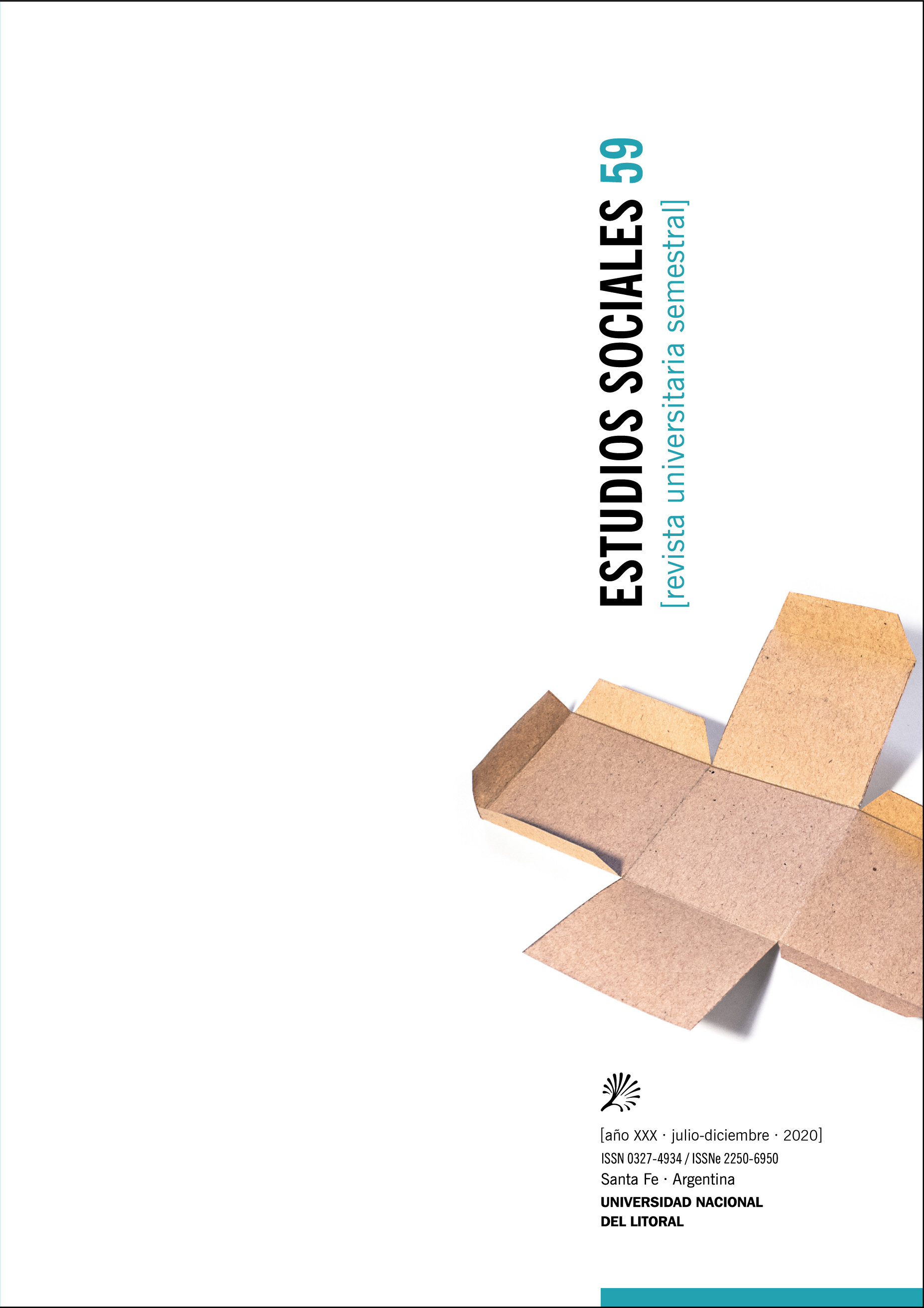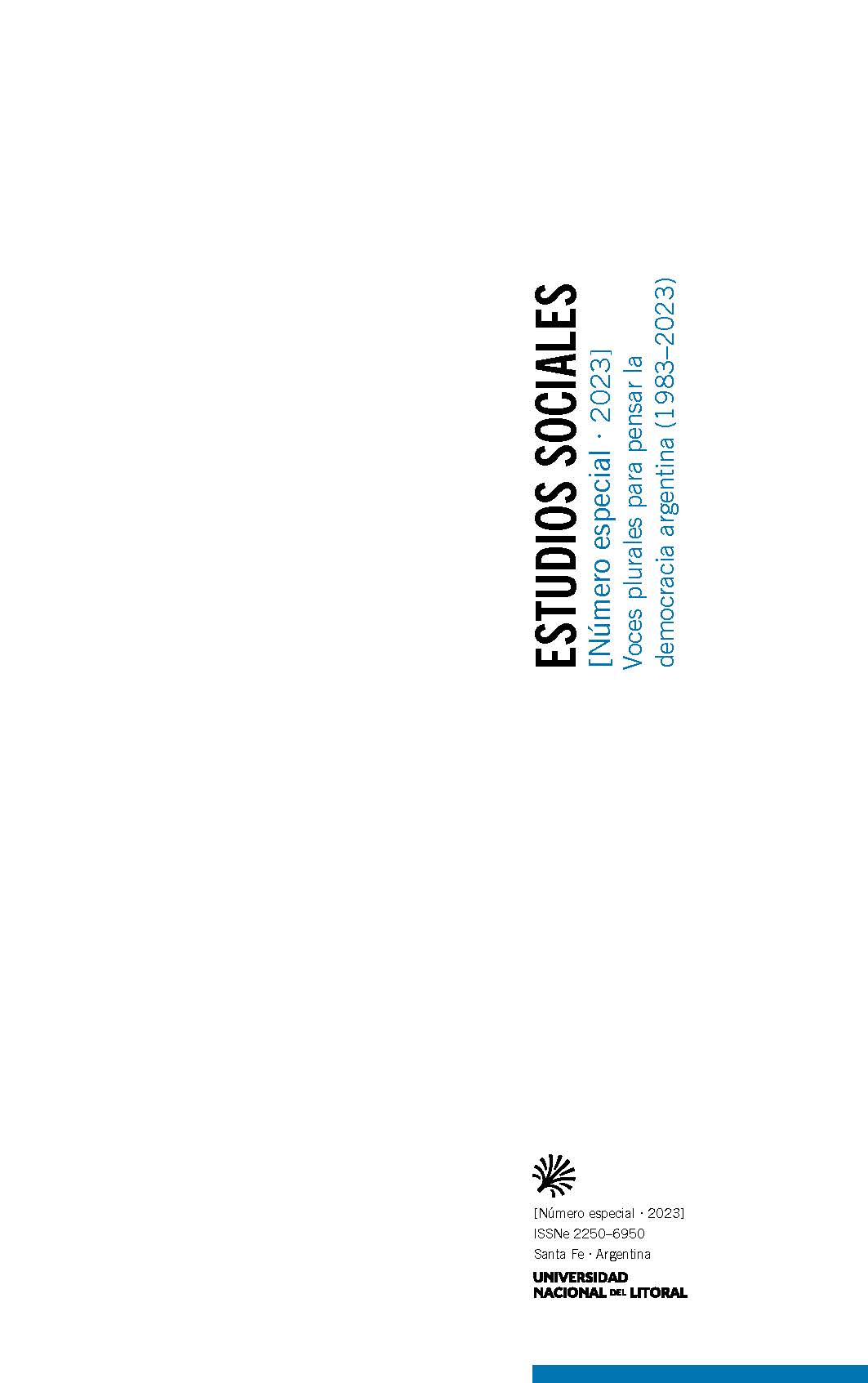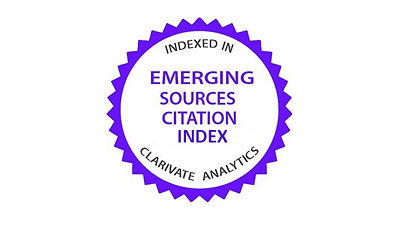América Latina y la historiografía del Derecho Penal Internacional
DOI:
https://doi.org/10.14409/es.v59i2.7772Palavras-chave:
Derecho penal internacional, Historia del derecho internacional, América Latina, estudios críticos, derechos humanosResumo
Este artículo explora la relación entre la historia del derecho penal internacional, el giro histórico en el derecho internacional y América Latina. Argumenta que la «narrativa del manual» ha facilitado la justificación del proyecto del derecho penal internacional, a expensas de difundir una historia simplista que asume que la disciplina ha existido en su forma actual desde, al menos, la posguerra de la Segunda Guerra Mundial. El
artículo muestra cómo esta narrativa ha comenzado a ser desafiada por el giro histórico en el derecho internacional, que ha infundido una preocupación metodológica al estudio del derecho internacional en general. Por último, el artículo argumenta que la exclusión de ciertos desarrollos que tuvieron lugar en América Latina durante las transiciones a la democracia a partir de la década de 1980 de la historia convencional del derecho penal internacional señala ciertos problemas significativos en la historiografía de la disciplina.
Referências
ANGHIE, ANTONY (2005): Imperialism, Sovereignty and the Making of International Law, Cambridge University Press.
ANGHIE, ANTONY y CHIMNI, B.S. (2003): «Third World Approaches to International Law and Individual Responsibility in Internal Conflict», en: Chinese Journal of International Law, nº 2.1.
ARENDT, HANNAH (1963): Eichmann in Jerusalem, Viking Press, Nueva York.
ARTHUR, PAIGE (2009), «How ‹Transitions› Reshaped Human Rights: A Conceptual History of Transitional Justice», en: Human Rights Quarterly, nº 31.2.
ALVIAR, HELENA Y ENGLE, KAREN (2016): «The Distributive Politics of Impunity and Anti-Impunity: Lessons from Four Decades of Colombian Peace Negotiations» en: Karen Engle et al., Anti-Impunity and the Human Rights Agenda, Cambridge University Press.
BANTEKAS, ILIAS Y NASH, SUSAN (2007): International Criminal Law, Routledge.
BARRETO, JOSÉ MANUEL (2013): Human Rights from a Third World Perspective, Cambridge Scholars Publishing.
BARRETO, JOSÉ MANUEL (2015): Six Books: International Law, Human Rights and the Politics of the Turn to History, Critical Legal Thinking.
BASS, GARY (2000), Stay the Hand of Vengeance, Princeton University Press.
BASSIOUNI, CHERIF (2013): Introduction to International Criminal Law, Brill Nijhoff.
BECKER LORCA, ARNULF (2006): «International Law in Latin America or Latin American International Law? Rise, Fall, and Retrieval of a Tradition of Legal Thinking and Political Imagination», en: Harvard International Law Journal, nº 47.1.
BECKER LORCA, ARNULF (2012): «Eurocentrism in the History of International Law» en: Bardo Fassbender y Anne Peters, The Oxford Handbook of the History of International Law.
BECKER LORCA, ARNULF (2014): Mestizo International Law, Cambridge University press.
BERGSMO, MORTEN ET AL. (2014): Historical Origins of International Criminal Law: volúmenes 1-5, TOAEP.
BERMAN, NATHANIEL (1992): «Modernism, Nationalism, and the Rhetoric of Reconstruction», en: Yale Journal of International Law & the Humanities, nº 4.2.
BIANCHI, ANDREA (2017): International Law Theories: An Inquiry into Different Ways of Thinking, Oxford University Press.
BURT, JO-MARIE ET AL. (2013): «Civil Society and the Resurgent Struggle against Impunity in Uruguay (1986–2012) », en: The International Journal of Transitional Justice, nº 7.
CASSESE, ANTONIO (2008), International Criminal Law, Oxford University Press.
CHEHTMAN, ALEJANDRO (2017): «A Theory of International Crimes: Conceptual and Normative Issues», Oxford Handbook of International Criminal Law (en prensa).
COLLINS, CATH (2010): «Human Rights Trials in Chile during and after the ‹Pinochet Years›», en: The International Journal of Transitional Justice, vol. 4.
COMMISSION ON THE RESPONSIBILITY OF THE AUTHORS OF THE WAR AND ON ENFORCEMENT OF PENALTIES, «Report Presented to the Preliminary Peace Conference», American Journal of International Law, vol. 14.
COMISIÓN INTERAMERICANA DE DERECHOS HUMANOS (CIDH) (1974): «Informe sobre la Situación de los Derechos Humanos en Chile», OEA/Ser.L/V/II.49 doc. 21.
COMISIÓN INTERAMERICANA DE DERECHOS HUMANOS (CIDH) (1977): «Tercer Informe sobre la Situación de los Derechos Humanos en Chile», OEA/Ser.L/V/II.40 doc. 10.
COMISIÓN INTERAMERICANA DE DERECHOS HUMANOS (CIDH) (1978): «Informe sobre la Situación de los Derechos Humanos en El Salvador», OEA/Ser.L/V/II.46 doc. 23 rev. 1.
COMISIÓN INTERAMERICANA DE DERECHOS HUMANOS (CIDH) (1979): «Informe sobre la Situación de los Derechos Humanos en Haití», OEA/Ser.L/V/II.46 doc. 66, rev. 1.
COMISIÓN INTERAMERICANA DE DERECHOS HUMANOS (CIDH) (1980): «Informe sobre la Situación de los Derechos Humanos en Argentina», OEA/Ser.L/V/II.49 doc. 19.
CRAWFORD, JAMES (2012): Brownlie’s Principles of International Law, Oxford University Press.
CRYER, ROBERT ET AL. (2014): An Introduction to International Criminal Law and Procedure, Cambridge University Press.
ENGLE, KAREN (2015): «Anti-Impunity and the Turn to Criminal Law in Human Rights», en: Cornell Law Review, nº 100.5.
ESLAVA, LUIS ET AL. (2017): Bandung, Global History, and International Law: Critical Pasts and Pending Futures, Cambridge University Press.
ESLAVA, LUIS y PAHUJA, SUNDHYA (2012): «Beyond the (Post)Colonial: TWAIL and the Everyday Life of International Law», en: Journal of Law and Politics in Africa, Asia and Latin America, nº 45. 2.
FAKHRI, MICHAEL (2012): «Questioning TWAIL's Agenda», en: Oregon Review of International Law, vol. 14.1.
FARER, TOM (1997): «The Rise of the Inter-American Human Rights Regime: No Longer a Unicorn, Not Yet an Ox», en: Human Rights Quarterly, nº 19.3.
GATHII, JAMES THUO (2018): »A Critical Appraisal of the International Legal Tradition of Taslim Olawale Elias», en: Leiden Journal of International Law, nº 21.
GARGARELLA, ROBERTO (2015): «La democracia frente a los crímenes masivos: una reflexión a la luz del caso Gelman», en: Revista Latinoamericana de Derecho Internacional, nº 2.
HALME-TUOMISAARI, MIIA y SLOTTE, PAMELA (2015): «Revisiting the origins of human rights: introduction», en: Pamela Slotte y Miia Halme-Tuomisaari (eds.), Revisiting the Origins of Human Rights, Cambridge University Press.
HATHAWAY, OONA y SHAPIRO, SCOTT (2017): The Internationalists, Allen Lane.
HELLER, KEVIN (2011), The Nuremberg Military Tribunals and the Origins of International Criminal Law, Oxford University Press.
HELLER, KEVIN (2017): «What Is an International Crime? (A Revisionist History) », en: Harvard International Law Journal, nº 58.2.
HELLER, KEVIN y SIMPSON, GERRY (2013): The Hidden Histories of War Crimes Trials, Oxford University Press.
HOFFMANN, STEFAN-LUDWIG (2017): «Derechos humanos e historia», Revista Latinoamericana de Derecho Internacional, nº 6.
HULL, ISABEL (2014): A Scrap of Paper: Breaking and Making International Law During the Great War, Cornell University Press.
HUNEEUS, ALEXANDRA (2013): «International Criminal Law by Other Means: The Quasi-criminal Jurisdiction of the Human Rights Courts», en: American Journal of International Law nº 107.1.
JENSEN, STEVEN (2016): The Making of International Human Rights: The 1960s, Decolonization, and the Reconstruction of Global Values, Cambridge University Press.
KENNEDY, DAVID (1987): «The Move to Institutions», en: Cardozo Law Review, nº 8.
KNOX, ROB (2015): «Race, Racialisation and Rivalry in the International Legal Order», en: Alexander Anievas et al. (eds.), Race and Racism in International Relations: Confronting the Global Colour Line, Routledge.
KOPELMAN, ELIZABETH (1991): «Ideology and international law: the dissent of the Indian justice at the Tokyo War Crimes Trial», NYU Journal of International Law and Politics, nº 23.2.
KOSKENNIEMI, MARTTI (2001): The Gentle Civilizer of Nations, Cambridge University Press.
KOSKENNIEMI, MARTTI (2011): «Histories of International Law: Dealing with Eurocentrism», Rechtsgeschichte, nº 19.
KOSKENNIEMI, MARTTI (2018): «Less is More: Legal Imagination in Context», Leiden Journal of International Law, nº 31.3.
LANG, ANDREW y MARKS, SUSAN (2017): «Even the Dead Will Not Be Safe International Law and the Struggle over Tradition» en: Wouter Werner et al., The Law of International Lawyers: Reading Martti Koskenniemi, Cambridge University Press.
LUBAN, DAVID (2013): «After the Honeymoon: Reflections on the Current State of International Criminal Justice», en: Journal of International Criminal Justice, nº 11.3.
MARKS, SUSAN (2013): «Four human rights myths» en: Kinley, David et al. (eds.), Human Rights: Old Problems, New Possibilities, Edward Elgar Publishing.
MÉGRET, FRÉDÉRIC (2002): «The Politics of International Criminal Justice», en: European Journal of International Law nº 13.5.
MÉGRET, FRÉDÉRIC (2018): «International Criminal Justice as a Peace Project», en: European Journal of International Law, nº 18.3.
MORENO OCAMPO, LUIS (2014): Cuando el poder perdió el juicio, Capital Intelectual, Buenos Aires.
MOYN, SAMUEL (2010): The Last Utopia, Harvard University Press, Cambridge
MOYN, SAMUEL (2012): «Substance, Scale, and Salience: The Recent Historiography of Human Rights», en: Annual Review of Law and Social Science, nº 8.
MOYN, SAMUEL (2014): Human Rights and the Uses of History, Verso.
MOYN, SAMUEL (2016): «From Aggression to Atrocity: Rethinking the History of International Criminal Law», Oxford Handbook of International Criminal Law (en prensa).
MOYN, SAMUEL (2017): «El final de la historia de los derechos humanos», en: Revista Latinoamericana de Derecho Internacional, nº 6.
MOYN, SAMUEL (2018): Not Enough: Human Rights in an Unequal World, Harvard University Press.
NESIAH, VASUKI (2016): «Doing History with Impunity» en: Karen Engle et al. (eds.), Anti-Impunity and the Human Rights Agenda.
NINO, CARLOS SANTIAGO (1995): Radical Evil on Trial, Yale University Press.
NOUWEN, SARAH M. H. (2012): «Justifying Justice» en: James Crawford y Martti Koskenniemi (eds.), The Cambridge Companion to International Law, Cambridge University Press.
OBREGÓN, LILIANA (2006): «Between Civilisation and Barbarism: Creole interventions in international law», en: Third World Quarterly, vol. 27.5.
O’KEEFE, ROGER (2015): International Criminal Law, Oxford University Press.
ORFORD, ANNE (2013): «The Past as Law or History? The Relevance of Imperialism for Modern International Law» en: Toufayan, Mark et al. (eds.), International Law and New Approaches To The Third World, Société de Législation Comparée.
ORFORD, ANNE (2017): «International Law and the Limits of History», en: Wouter Werner et al. The Law of International Lawyers: Reading Martti Koskenniemi, Cambridge University Press.
PAL, RADHABINOD (1953): International Military Tribunal for the Far East: Dissentient Judgment, Sanyal.
PITTS, JENNIFER (2017): «International relations and the critical history of International Law», en: International Relations, nº 31.3.
ROBERTSON, GEOFFREY (2012): Crimes Against Humanity: The Struggle For Global Justice, Penguin.
SCARFI, JUAN PABLO (2017): «Del giro ético al historicista: el potencial y los límites de la perspectiva histórica en los derechos humanos y el derecho internacional», en: Revista Latinoamericana de Derecho Internacional, nº 6.
SCARFI, JUAN PABLO (2017): The Hidden History of International Law in the Americas: Empire and Legal Networks, Oxford University Press, Oxford.
SCHABAS, WILLIAM (2016): «La banalidad de la justicia internacional», en: Revista Latinoamericana de Derecho Internacional, nº 4.
SCHEFFER, DAVID (2011): All the Missing Souls, Princeton University Press.
SCHMITT, CARl (2006): The Nomos of the Earth, Telos, Nueva York.
SCHWARZENBERGER, Georg (1950): «The Problem of an International Criminal Law», en: Current Legal Problems, nº3. 1.
SIKKINK, KATHRYN (2013): La Cascada de la Justicia, Gedisa, Barcelona.
SIMPSON, GERRY (2004): Great Powers and Outlaw States, Cambridge University Press.
SIMPSON, GERRY (2007): Law, War and Crime, Polity.
SIMPSON, GERRY (2013): «History of Histories» en: Kevin Jon Heller y Gerry Simpson (eds.), The Hidden Histories of War Crimes Trials, Oxford University Press.
SIMPSON, GERRY (2016): «Mutually Assured Construction: Two Ways of Looking at the Cold War», manuscrito inédito.
SIMPSON, GERRY (2016): «Anti-anti-anti impunity», manuscrito inédito.
SKINNER, QUENTIN (1969), «Meaning and Understanding in the History of Ideas», en: History and Theory, nº 8.1.
TALLGREN, IMMI (2014): «Searching for the Historical Origins of International Criminal Law» en: Morten Bergsmo et al., Historical Origins of International Criminal Law: volume 3, TOAEP.
TEITEL, RUTI (2000): Transitional Justice, Oxford University Press, Oxford.
TEITEL, RUTI (2019): «¿El jurista global como un pedagogo? Ronald Dworkin en la Argentina postdictadura», en: Revista Latinoamericana de Derecho Internacional, nº 8.
UNGER, ROBERTO MANGABEIRA (2001): False Necessity, Verso.
VADI, VALENTINA (2017): «International law and its histories», en: Harvard International Law Journal, nº 58.2.
VARADARAJAN, LATHA (2014): «The trials of imperialism: Radhabinod Pal’s dissent at the Tokyo tribunal», en: European Journal of International Relations, nº 21.4.
WHYTE, JESSICA (2018): «Powerless Companions or Fellow Travellers? », en: Radical Philosophy, nº 202.
ZALAQUETT, JOSÉ (1992): «Balancing Ethical Imperatives and Political Constraints: The Dilemma of New Democracies Confronting Past Human Rights Violations», en: Hastings Law Journal, nº 43.6.
Downloads
Publicado
Como Citar
Edição
Seção
Licença
Los artículos publicados en Estudios Sociales. Revista Universitaria Semestral se encuentran disponibles gratuitamente en la Biblioteca Virtual de Publicaciones Periódicas de la Universidad Nacional del Litoral: http://bibliotecavirtual.unl.edu.ar/publicaciones.
El contenido está bajo Licencia Creative Commons Atribución-NoComercial-Compartir Igual 4.0 Internacional (BY-NC-SA): no se permite un uso comercial de la obra original ni de las posibles obras derivadas, la distribución de las cuales se debe hacer con una licencia igual a la que regula la obra original.
 Los artículos que sean aceptados, deberán ser acompañados del documento "Autorización para Publicar" que contiene la firma de los autores, en donde se acepta la originalidad del documento y autorizan a la Revista a la publicación del mismo. Las opiniones vertidas por los autores en sus artículos no reflejan necesariamente el parecer de Estudios Sociales. Revista Universitaria Semestral. El contenido de cada trabajo es responsabilidad exclusiva de su autor. En caso de que se utilicen trabajos, datos y/o palabras de otros autores, éstos tienen que ser debidamente citados. Cualquier contenido que sea detectado como fraudulento será elevado al Consejo Editorial de la revista para su revisión, quienes evaluarán el caso y determinarán los pasos a seguir.
Los artículos que sean aceptados, deberán ser acompañados del documento "Autorización para Publicar" que contiene la firma de los autores, en donde se acepta la originalidad del documento y autorizan a la Revista a la publicación del mismo. Las opiniones vertidas por los autores en sus artículos no reflejan necesariamente el parecer de Estudios Sociales. Revista Universitaria Semestral. El contenido de cada trabajo es responsabilidad exclusiva de su autor. En caso de que se utilicen trabajos, datos y/o palabras de otros autores, éstos tienen que ser debidamente citados. Cualquier contenido que sea detectado como fraudulento será elevado al Consejo Editorial de la revista para su revisión, quienes evaluarán el caso y determinarán los pasos a seguir.
Estudios Sociales. Revista Universitaria Semestral adhiere al Código de Conducta y Guía de Buenas Prácticas para editores científicos del Comité de Ética de Publicaciones (COPE):http://publicationethics.org/














